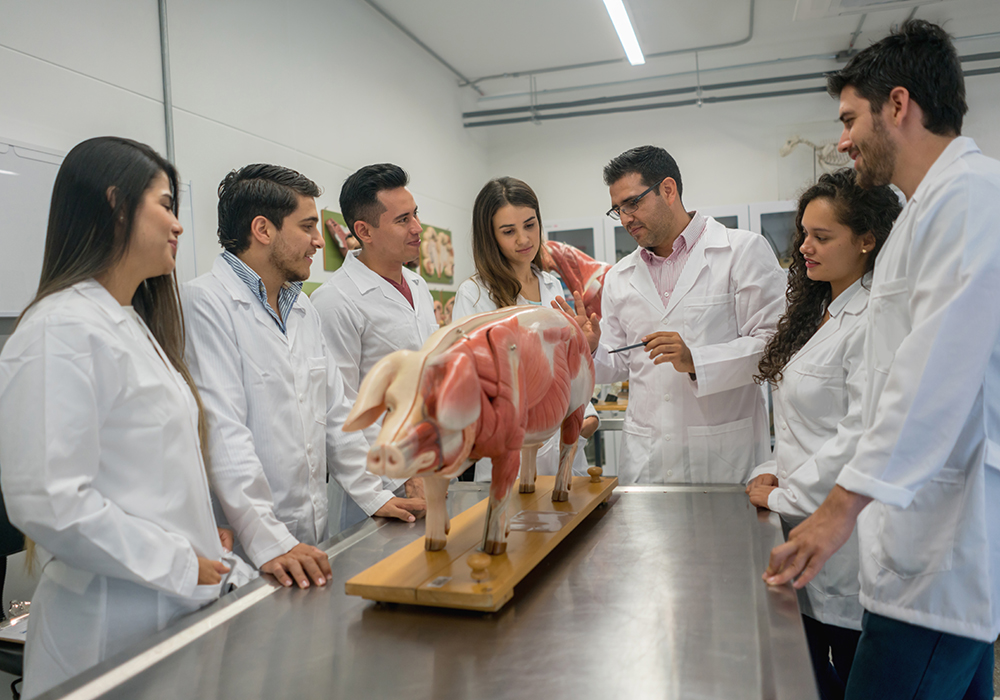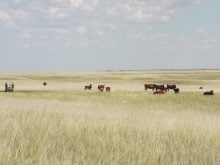Non-subsidized veterinary students say it’s frustrating that they weren’t included in a recent funding announcement
CORRECTION: November 10, 2022 – A quote in the story below by WCVM dean Dr. Gillian Muir should not have implied that Muir expects provincial government partners to subsidize expansion seats at the college.
Forgotten: that is how some veterinary students feel about a recent funding announcement by the Saskatchewan and Manitoba governments that will add five seats each to their interprovincial agreement quota at the University of Saskatchewan’s Western College of Veterinary Medicine.
Read Also

Beef cattle more prone to trace mineral deficiencies
The trace mineral status of our cows and calves is a significant challenge for western Canadian producers and veterinarians.
Second-year students Trinity Gibney from Regina and Tara Sweetnam from Winkler, Man., are in the non-interprovincial agreement and pay the international tuition fee of $69,000 per year. Their classmates within the IPA pay $14,000.
Upon graduation, the women said their expected debt of about $300,000 could curtail their dreams of owning a large veterinary medicine practice in their home provinces.
“It was a very emotional day when (governments) didn’t announce that they were also funding the non-IPA students already in school,” said Gibney.
“It’s just frustrating. It’s an extra stress. We’re going to get out and have just as much debt as some of the other professions like the human physicians and not get paid anywhere near what they do.”
Added Sweetnam: “The announcement, obviously it’s very good for the future of the college but as a current non-IPA student, you feel forgotten in the system, especially when your interest is agriculture and there’s such a dire need for vets, especially in large animal.
“The biggest thing is you just feel overlooked by this announcement…. I feel like Manitoba and Saskatchewan have potentially lost an opportunity of students that are already in the system.”
The two provincial governments recently announced greater funding for the WCVM to create an additional five IPA seats each from Saskatchewan and Manitoba. Effective in 2023-24, Saskatchewan’s annual intake will rise from 20 to 25, while Manitoba will move from 15 to 20 students.
In March, British Columbia announced its funding would double, increasing its provincially subsidized seats to 40 from 20 in the WCVM’s veterinary medicine program this fall. It also announced temporary funding for non-IPA seats.
It was a welcome reprieve for non-IPA students from B.C., but the province has not announced whether funding for non-IPA students will continue next year.
“Our agreement says that it needs to happen by March 1…. That’s the latest date that they can let us know if they intend to continue funding an additional 20 seats in fall 2023,” said WCVM dean Dr. Gillian Muir.
She said the non-IPA seats were developed as a way to sustain and fund the college after Alberta established its own veterinary medicine program at the University of Calgary in 2020 and did not renew its participation in the WCVM program.
Students are selected for an IPA seat through a combination of their grade point average and in-person interviews. Scores are sent to each student indicating whether they were chosen for either an IPA or non-IPA seat.
“We first give the opportunity to Canadians to take those seats… certainly applicants from B.C., Manitoba and Saskatchewan,” said Muir.
“Every vet school is considering sort of expanding their capacity. We’re at max right now with this program that we’ve got and cannot take more than 88. But we’re looking at this program,” she added.
Gibney is awaiting feedback after putting her concerns into a letter she recently addressed to Saskatchewan’s education minister.She said there are eight non-IPA Saskatchewan students enrolled at the WCVM and Manitoba has the same number.
Muir said she understands the substantial financial burden experienced by non-IPA students, as well as the shortage of veterinarians across Canada, noting the WCVM’s program is in high demand.
“I empathize with their situation. It could not have been an easy choice to make. As long as our program doesn’t include fully funded seats, then we will always be sort of facing this situation.”
















